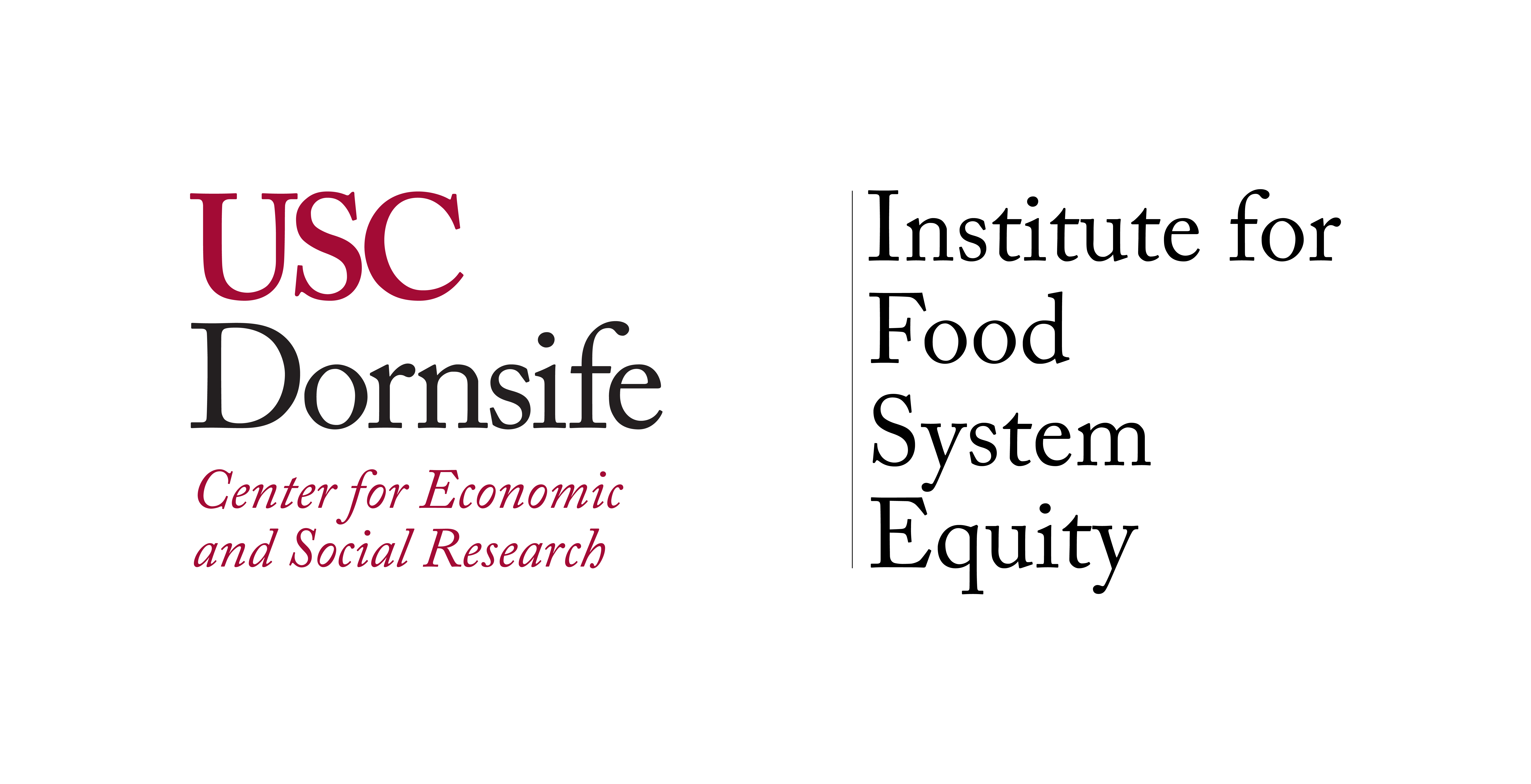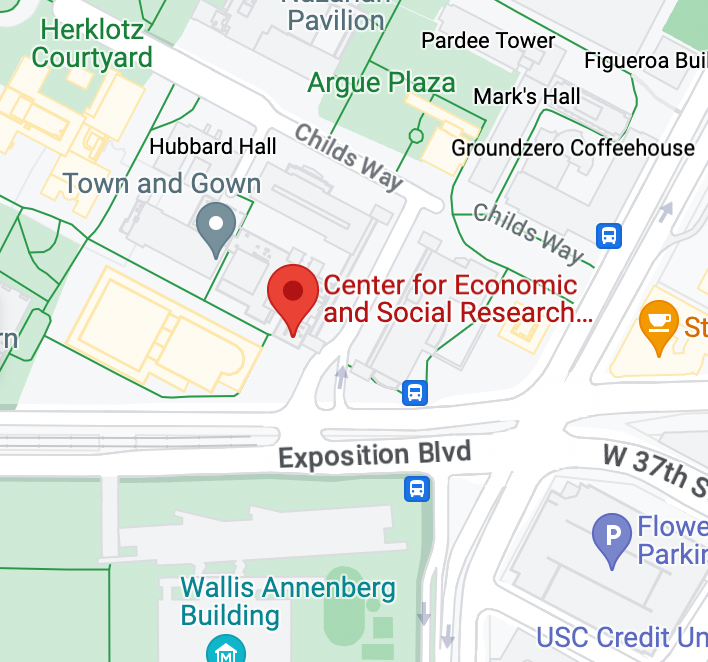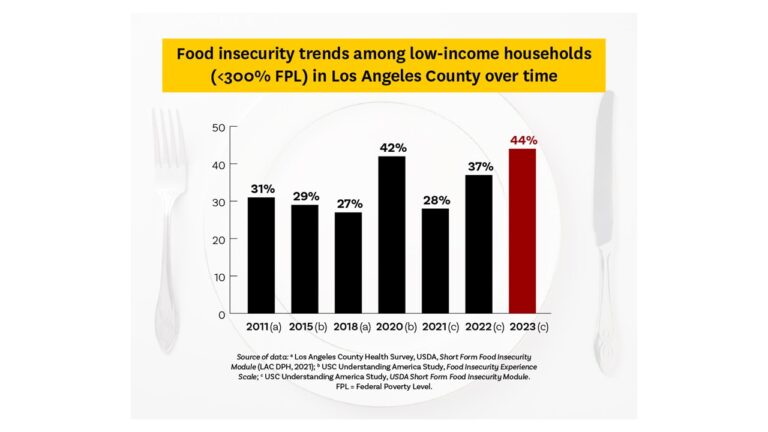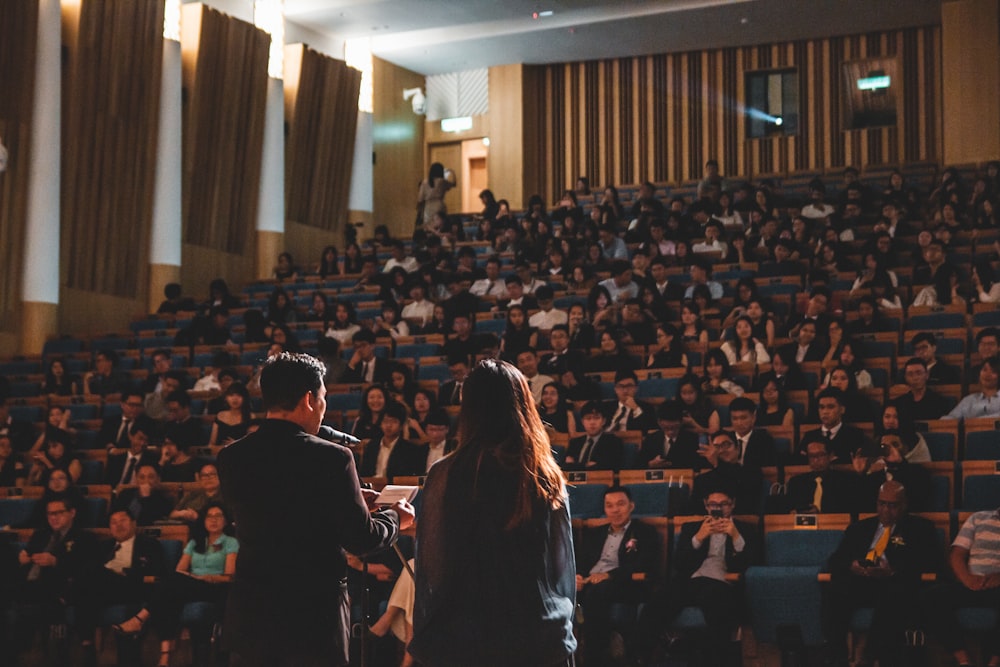
Institute for Food System Equity
The Institute for Food System Equity generates actionable scientific insights to help to build food systems that support human health, planetary health, and equity.
How we make a difference
Impact
Our work intends to create food systems that:
- support food and nutrition security, healthy diets, and good health for all people,
- are sustainable, so that the foods we produce and eat are good for the health of the planet
- are equitable, meaning people have equal opportunities to produce, access, and eat good food.
Research & Partnerships
We conduct high quality research that leads to real world impacts.
We use systems science to understand the complexity of food issues and inform food system transformation.
We do team science. Experts in public health, behavioral science, public policy, spatial science, and data science work with community stakeholders and external partners to tackle complex problems.

Projects
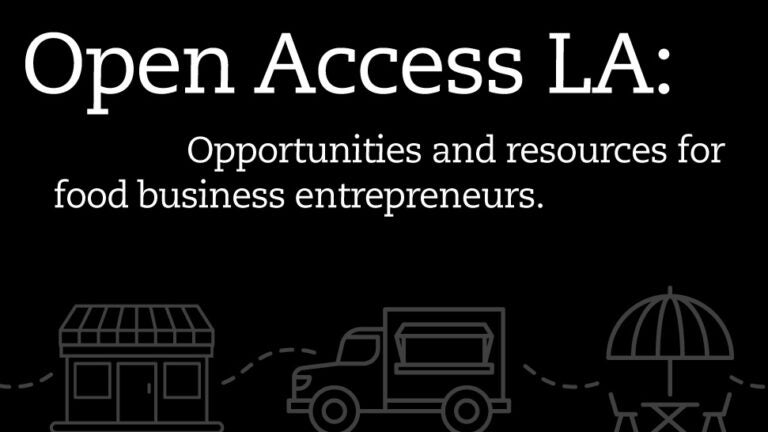
Open Access LA
Open Access LA is a free online portal designed to connect food entrepreneurs to local resources including capital, permitting, licensing, loan and credit opportunities, technical assistance, training programs, and more. These resources can help Los Angeles’ food entrepreneurs plan, launch, and grow their food truck, restaurant, cafe, private label, catering, or other food businesses.
Smart & Connected Community Food Systems
This project develops a new, community-engaged approach to monitor and understand food security and community food systems, and how these are impacted by crises like COVID-19. We are building a data dashboard called Food Base LA to share this timely information with stakeholders who are addressing food challenges, like policymakers and local organizations, so they can help residents access sufficient healthy food.
Funding: National Science Foundation (Grant No. 2125616, PI: de la Haye), USC Dornsife Public Exchange, American Heart Association, Keck Medicine of USC, Keck School of Medicine, USC Dornsife Emergency Fund
Artificial Intelligence, Modeling, and Informatics for Nutrition Guidance and Systems (AIMINGS) Center
This is the artificial intelligence (AI) and data modeling center for the National Institutes of Health Nutrition for Precision Health Initiative. Precision Nutrition assumes that the best diet for one individual may look different than the best diet for another, because people have different responses to specific foods and nutrients. The AIMINGS Center uses new data science tools to develop algorithms that will predict individual responses to food and dietary patterns, in a way that accounts for the complex systems that impact nutrition, eating, and food access.
Funding: National Institutes of Health (Grant 1U54TR004279, PI: Lee)
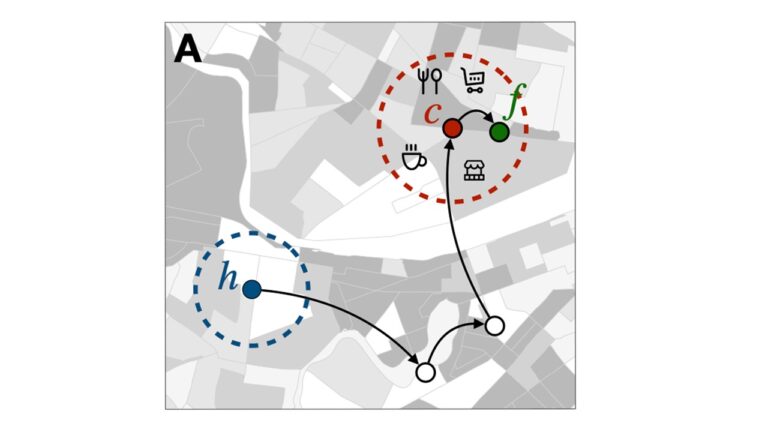
Using Big Mobility Data to Map the Food Environments of Diverse Los Angeles Residents
This study uses big data on human mobility to understand how people move around a large city to access and acquire food, within and beyond the home neighborhood. We use new data science methods to understand access to mobile food environments for diverse populations, and how this is related to socio-demographics, diet, and health.
Funding: University of Southern California, Keck School of Medicine (PIs: K. de la Haye, E. Moro, S. Pentland)

Analyzing Digital Menu Data to Characterize Nutritional Quality of Food Environments
This project draws on digital menus and nutrition data, and applies language modeling and machine learning, to develop an algorithm that estimates the nutritional quality of restaurants. The goal is to develop tools that can generate more nuanced and useful information about the quality of food available within restaurants and neighborhood food environments, and disparities in access to nutritious foods.
Funding: National Institute of Minority Health and Health Disparities (NIMHD) under award P50MD017344 to the Southern California Center for Latino Health (PI: A. Horn).

A.I.-Driven Meal Recommendations To Meet Sociocultural and Nutritional Dietary Needs
This project is developing a mobile app that will support clinicians in implementing meal prescription interventions that are tailored to the needs of patients with diverse food preferences. Existing apps for meal planning tend to focus on Western diets. The algorithms we are developing will help to recommend meals that meet the multi-criteria objectives of clinical requirements, dietary restrictions, cost limits, and sociocultural dietary preferences.
Funding: Keston Exploratory Research Award to the Information Sciences Institute (PI: A. Horn)

Healthy and Sustainable Food Labels: The Food Basket Study
This study examines how labels on food can be used to promote healthy and sustainable food choices. In a nationally representative survey, we conduct experiments where people choose between two gourmet food gift baskets: one with meat and dairy, and one without. We find that few chose the food basket without meat and dairy when it was labelled “vegan” (20%) or “plant-based” (27%), while more than 40% chose this basket when it was labeled “healthy” and/or “sustainable”.
Funding: USC Center for Economic and Social Research, USC Wrigley Institute for Environment and Sustainability, USC Schaeffer Center for Health Policy and Economics, and the National Science Foundation (Grant 2125616).
Kayla de la Haye, PhD, Director
The Institute for Food System Equity is founded and directed by Dr. Kayla de la Haye, a scientist at the University of Southern California’s (USC) Center for Economic and Social Research.
Her work aims to understand and promote healthy eating, precision nutrition, and food and nutrition security, to ultimately support good health and prevent chronic disease.
de la Haye was trained in health psychology, and her areas of expertise are:
- behavioral science and understanding influences on health behaviors, like eating
- using social networks and systems science to address complex public health issues
- addressing health disparities
- team science that engages with community and external partners to have a real world impact
de la Haye grew up in the Canadian prairies, went to university in Australia, and has lived in Los Angeles for the past decade.

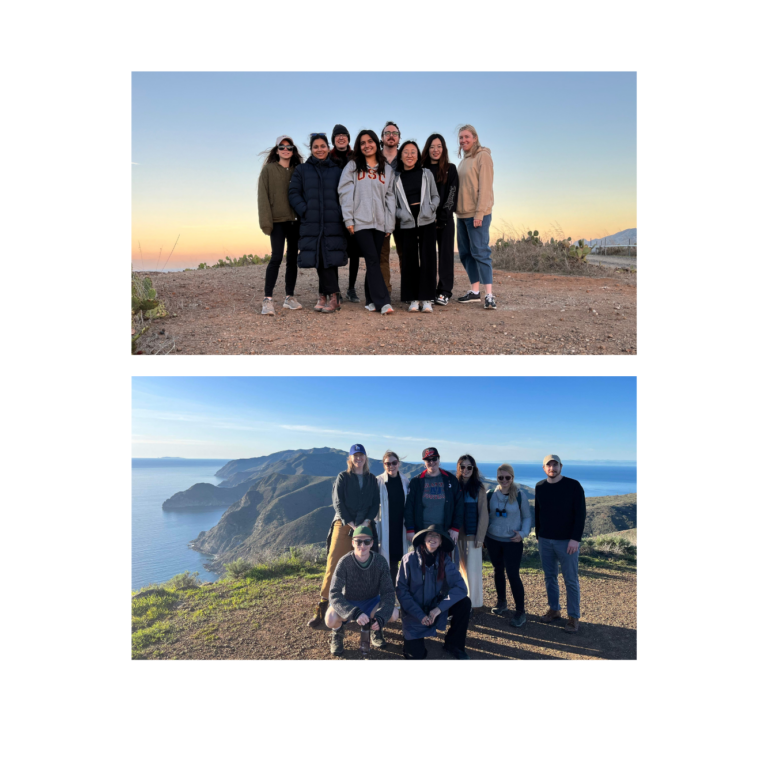
Strategic Partners
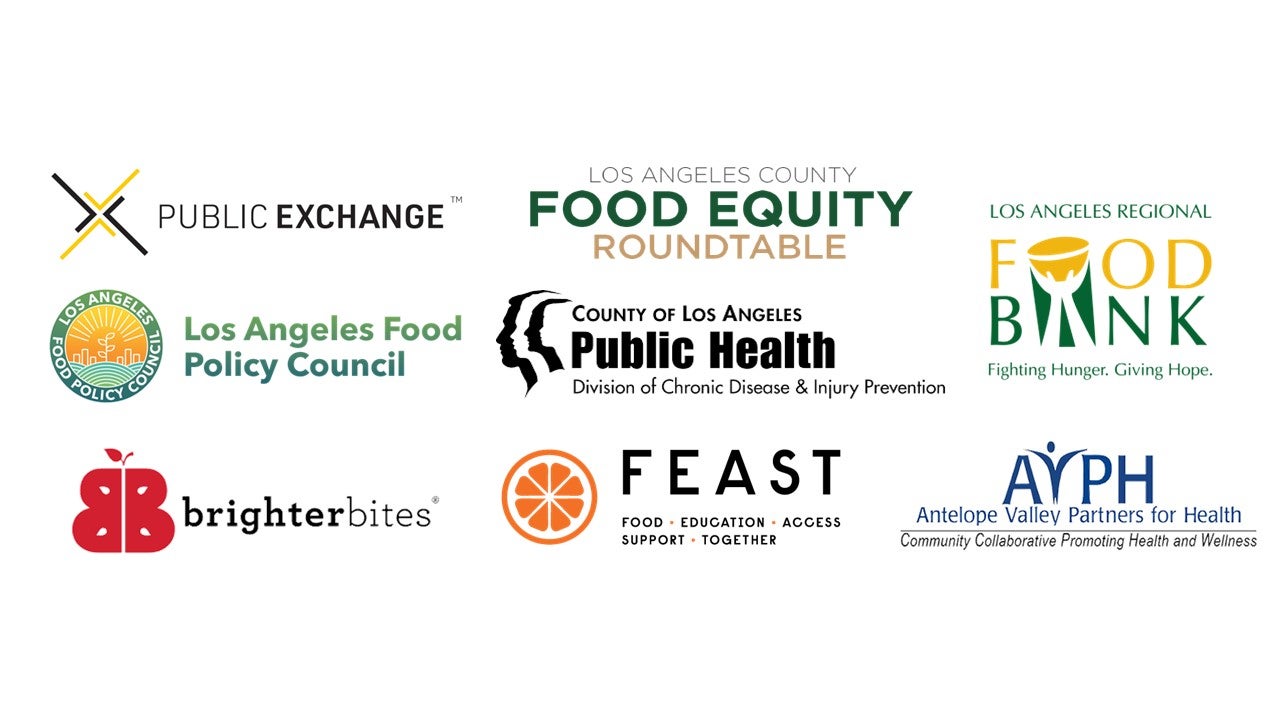
Impact
In the News

Academic Publications
Reports
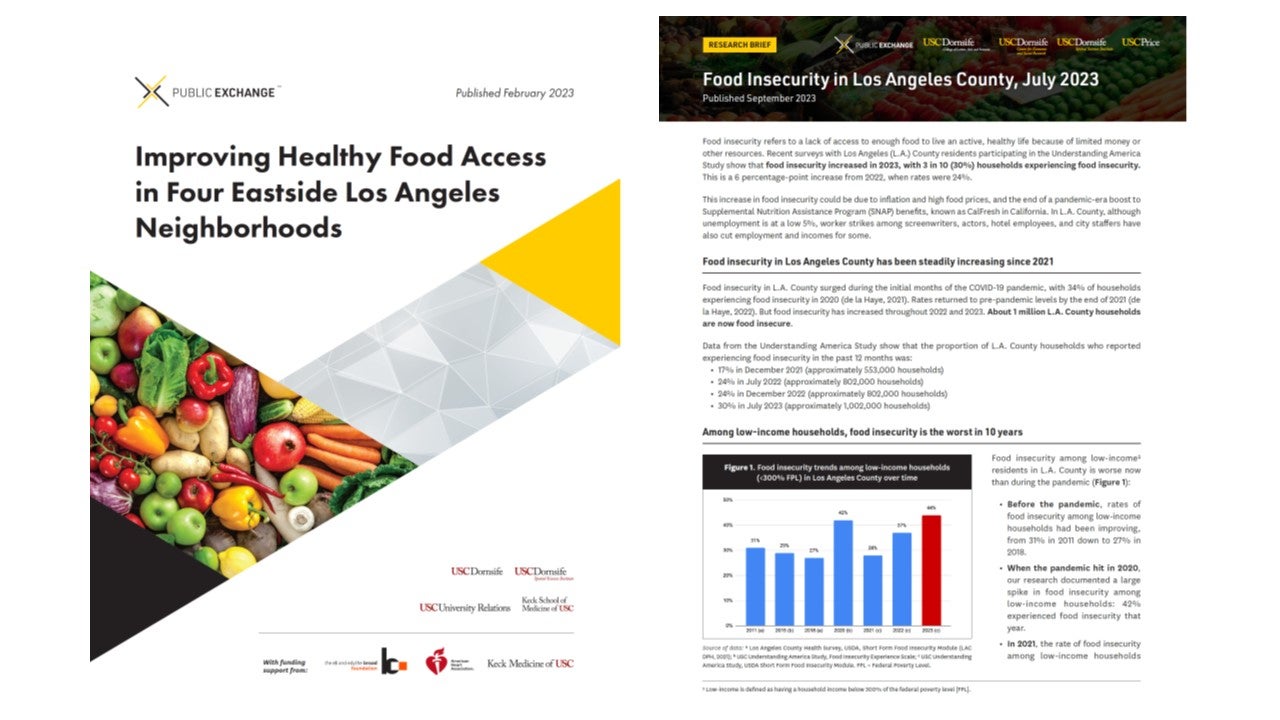
Contact
Institute for Food System Equity
Center for Economic Research and Social Research (CESR)
University of Southern California
635 Downey Way, VPD, Los Angeles, CA 90089
foodsystems@usc.edu
